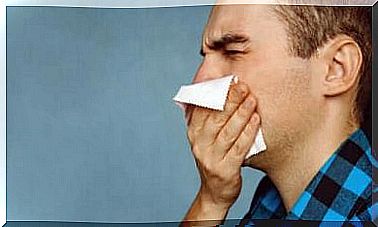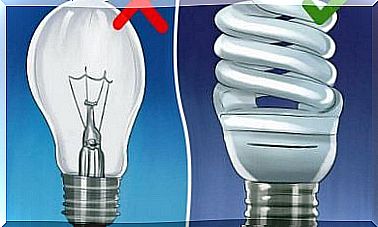7 Keys To Calm Down During A Panic Attack

If by nature you are a person nervous, certainly fits of panic are not anything new for you. If you want, you can learn to control all kinds of anxiety attacks naturally. Learn with us today some tips on how to quickly and effectively relieve the symptoms of a panic attack and get rid of anxiety and unmanageable stress.
This article may also prove useful if someone close to you suffers from frequent panic attacks and is unable to deal with them on their own. After reading this text, you will be able to help anyone whose nerves cloud their ability to think rationally.
Panic Attacks – What Are They?
Let’s start by giving an accessible definition of a panic attack. Understanding the meaning of this increasingly frequent emotional state is the first step in treating mild forms of neurosis.
It is worth learning to distinguish between ordinary stress and uncontrolled anxiety attacks – only then will we be able to react properly and quickly and effectively alleviate the unpleasant symptoms of losing control over the nerves.
- Panic attacks are an emotional condition that occurs regularly in many people around the world. Today, specialists record hundreds or even thousands of new cases every day.
- The inability to control stress and own emotions is one of the characteristic elements of a fast lifestyle (pursuit of a career, excess responsibilities, lack of concern for health, etc.).

- An attack of anxiety or neurosis is the result of our body overproducing adrenaline. It is a hormone that is responsible for the natural control of fear. However, if its concentration in the blood is too high – the effect of its action is the opposite: instead of giving us an impulse to overcome fear, it causes panic attacks.
- Panic attacks are the body’s reaction to emergency situations in which our body does not know how to behave. They are therefore an irrational factor and therefore not easy to control
- Generally, panic attacks or anxiety attacks last between 15 and 30 minutes. After this time, our body gradually calms down and returns to the state it was in before the loss of nerves.
1. Learn to recognize the symptoms of panic attacks
A panic attack is usually the result of excessive stress – so intense that our body cannot respond correctly to the threat. As mentioned above, it is an irrational factor that we cannot always control.
Hence, treatment of this type of psychological disorder can be long and difficult. It would be different if we were faced with an emotional state caused by logical factors.
It should be emphasized that panic attacks – like any other disease or ailment, send a number of symptoms, thanks to which we can more easily recognize the emotional condition of our body and properly react to all kinds of changes caused by stress.
The most common symptoms of a panic attack are:
- Increased heart rate
- Negative thoughts
- Sensation of shortness of breath or even short-term cardiac arrest
- Abdominal pain
- Dizziness and nausea
- Excessive sweating
2. Control your breathing
The above symptoms will help you determine when to focus on the proper breathing. Proper breathing is key to quickly calming the body down and fighting a panic attack.

Remember that controlling the inhaled and exhaled air helps to stabilize the heart rate and restore a normal pulse.
How should you breathe during a panic attack?
- Take a deep breath to the count of five. Then hold the air in your lungs for about seven seconds, then exhale mentally to eight.
- Repeat this cycle of breathing for about five minutes, or if necessary, until you are completely calm.
3. Try to chase away negative thoughts when you have panic attacks
Panic attacks are generally associated with frequent black, negative thoughts. Hence, depression can be the fruit of recurring attacks of anxiety. A very important step in preventing this terrible disease is acquiring the ability to chase away negative, destructive thoughts.
Breathing exercises are extremely effective in this case, during which you should concentrate all positive energy on chasing away negative thoughts and everything that leads to loss of control over your own nerves.
4. Repeat the motivating and reassuring sentences out loud
The main point here is that you learn to convince yourself (or third parties in whom you witness a panic attack) that everything is going to be fine, that it is just a stress effect and the feeling of anxiety will pass quickly. Calming thoughts can be very effective in this case.
What you need to repeat yourself – mentally or out loud – is determined by individual preferences. Everyone can have different motivating sentences . The most important thing, however, is to achieve the goal – to quickly calm down in the face of an anxiety attack.

- For example, you can tell yourself that everything is fine, that there is nothing to stress about because your problem can be rationally resolved. So there is no need to worry.
- You can also concentrate on thinking that this is just a brief panic attack that is about to pass. Very often, thanks to such an attitude, it passes in just a few seconds.
- Be aware that you are in complete control of your body and decide whether you want to be afraid or not. In fact, thanks to the right attitude and knowledge of your emotions, you are able to control any stressful situation.
5. Find your shelter
Panic attacks can happen to us anywhere. If you are away from home at such a time, try to quickly find a suitable “shelter” where you can safely survive the attack, or quickly relieve its symptoms.
In the face of the impending anxiety attack, look for a secluded place where you will be alone. The presence and glances of other people can make your condition worse and may take you longer to recover.
6. Don’t run away, face the fear and overcome panic attacks
We have already learned what to do when facing a panic attack. Now is the time to announce what not to do.
- Don’t run away from fear and problems. Retreat and running away in such a situation is nothing more than admitting your weakness and simply surrendering to the destructive force of fear. Remember that fear is a monster that must be killed, not fed.
- So how do you deal with fear? Concentrate completely on breathing and recalling positive thoughts. Then the panic attack will be over in a few minutes and you will be able to resume your activities.
7. Do not give in to any rituals
Don’t try to overcome your anxiety attacks by submitting to scientifically unproven rituals. In fact, panic attacks are self-limiting, and the best cure for them is proper deep breathing.
If, for example, every time you fall victim to a panic attack, you will pray that it will pass as quickly as possible, you will not get a positive result. These two factors have absolutely nothing to do with each other. An anxiety attack is a physical reaction of the body that must be fought with “physical” methods.

By resorting to various rituals, you succumb to the power of superstition, which in no way can alleviate your ailments. On the contrary – they can contribute to the aggravation of your emotional and nervous disorders.









